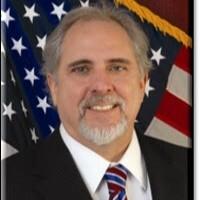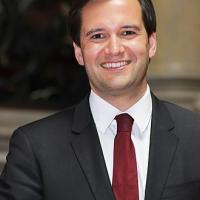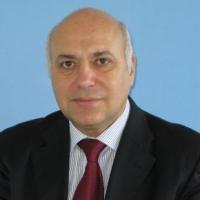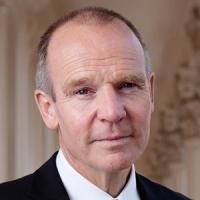A Science|Business closed-door hybrid roundtable, in partnership with Sanofi (14:30 – 17:00 CET), followed by networking drinks
The COVID crisis profoundly transformed the health policy landscape and collaboration mechanisms in Europe and the rest of the world. Beyond necessary short-term measures, it is now time for national, European and international policy makers to join forces ahead of future outbreaks.
In March 2022, the Council of the European Union adopted a decision to authorise the opening of negotiations for an international agreement on pandemic prevention, preparedness, and response. This legally-binding “treaty” is meant to not only ensure a long-term political engagement from national governments but also help define clear processes in terms of public-private collaboration – especially for health supplies and services - and enhance a coordinated approach to facilitate the discovery and development of vaccines, treatments and diagnosis. It is now up to the so-called Intergovernmental Negotiating Body (INB) to draft the future pandemic treaty, in the framework of World Health Organisation (WHO). The INB is expected to deliver a progress report to the World Health Assembly in 2023, and a draft agreement in May 2024. However, as the INB Bureau Vice-Chair Viroj Tangcharoensathien declared after the first INB meeting in the summer 2022: “the smooth running of the meeting marked the honeymoon period, the tough challenge of negotiating the content of the treaty still lays ahead.” The drafting process, starting with the zero draft expected in February 2023, will reveal whether the WHO’s 194 member countries can align beyond general principles and lay out a concrete pandemic action plan.
At the EU level, Sweden, that holds the EU Presidency in the first semester 2023, is committing to “promote effective EU coordination during negotiations in the World Health Organisation”. But a lot more than the treaty itself is at stake since EU institutions, member states, and other key stakeholders need to agree on a common approach and address several key questions:
- What is the role of the EU in the drafting and negotiating process of the treaty? How will the ratifying process work in practice?
- What are the policy steps required at the EU level, in agreement with member states, to align EU programmes (e.g. EU4Health, HERA, Horizon Europe) and the EU Global Health Strategy with the future agreement?
- What level of coordination is there between HERA and its sister organisations around the world (e.g. BARDA in the US, SCARDA in Japan, the African Pandemic Preparedness and Response Authority)?
- Who will be involved in the treaty’s implementation? What will be the role of industry in this future framework of actions? Will the implementation allow supportive, practical, voluntary collaborative models on the model of the Berlin Declaration? How to make sure the new treaty builds on and leverage efficient pre-existing instruments and collaboration mechanisms especially in the field of surveillance and early detection?
- Developing a pandemic response requires sharing of pathogens, biological samples, and genomic sequence data. How to make sure this becomes a reality across the globe navigating bilateral restrictions set by the Nagoya Protocol, and in which framework?
- With the rising probability for zoonotic diseases to be transmitted to humans and trigger pandemics, biodiversity and future pandemic risks are fully intertwined. To what extent can the UN Biodiversity Convention, the regional biodiversity strategies and the pandemic treaty converge towards an efficient mechanism to prevent futures pandemics?
On 23 March 2023, Science|Business, in partnership of Sanofi, will gather high-level stakeholders from academia, research, industry and policy, actively working on prevention, preparedness and responses to future pandemics and formulate a set of policy recommendations to feed into the treaty’s drafting process.





























Format: An interactive discussion between all participants, around 3 main themes to be fed by selected guests. Moderator: Maryline Fiaschi (Science Business)
14:00 Welcome coffee & registration
14:30 Welcome
14:35 Get ready: What can realistically be achieved globally?
A scene setter on the rationale for formulating a world-wide response to prevent future pandemic and related challenges
15:30 Coffee break
15:45 The power of public-private partnerships
An open discussion on how pandemic preparedness can benefit from multi-stakeholders mechanisms involving universities, hospitals, research organisations, funding bodies, small and large companies. Collaboration areas may include surveillance, pathogen access, R&D/Clinical Trials, regulatory convergence, harnessing manufacturing capacity
16:25 Breaking silos: How to address pandemic preparedness, climate challenges and biodiversity risks in a more coordinated way
An open discussion with scientific and policy experts about the importance of addressing future outbreaks through a mutlidisciplinary lens and improving data and knowledge sharing across disciplines. How can the treaty and other relevant pieces of legislation allow a better convergence of global climate, environment and health-related objectives and programmes?
16:55 Conclusions
17:00 Networking drinks
COMET Meetings - Louise
Pl. Stéphanie 20, 1050 Bruxelles
For further information, please contact Denitsa Nikolova at [email protected]
Partners


 A unique international forum for public research organisations and companies to connect their external engagement with strategic interests around their R&D system.
A unique international forum for public research organisations and companies to connect their external engagement with strategic interests around their R&D system.